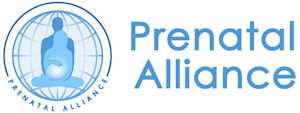The importance of prenatal bonding on health and learning

Bonding is the deep early connection between mother and baby or between a consistent caregiver and the baby. In the case of the mother or the father bonding with their baby, this heart-connection can start long before birth: during pregnancy, even during or before conception. It is the regular conscious attention and interaction that makes the baby feel loved and welcome and is of uttermost importance for his development.
The bonding occurs through intense eye contact, vocal communication and singing, touch and skin-to-skin contact, breastfeeding and play, all through which the baby feels the interest in his being. Endorphins are released through this contact and the autonomic nervous system is activated. According to Allan N. Schore, the maturation of the brain is controlled by interaction with the caregiver.
The results of bonding on the level of health show that babies are less prone to infections. Tactile stimulation enhances the immune system. Bonding lowers the mortality - and morbidity rate. Infants with an insufficient bonding show more asthma problems than infants that are securely attached.
Development and learning are very dependent on the loving interactions of the bonding between caregiver and infant and stimulate a superior cognitive development with earlier speech and language development. Also the visual and auditory perception and coordination are enhanced. A disrupted mother-infant relationship through isolation or separation can result in a retarded mental development.
Testing of babies who were given an enriched stimulation program in Thailand, Venezuela and Spain showed superior fine-and gross motor skills.
But the most results are to be found on emotional level. Parents that have bonded with their infants see their babies smiling earlier and show greater contentment after birth. These infants feel safe, secure and develop trust through these interactions. Through their healthy self-esteem, they develop quicker an independence to explore the world outside of their known territory.
They are able to develop relationships with new people in their environment. Attachment relationships develop the capability of self-regulation.
Whereas children that have experienced early separation can develop a character disorder marked by lack of affection; they are depressed, withdrawn, restless and lack spontaneity. They are unable to relate to others. They have to deal with a feeling of rejection, of disappointment, anxiety, failure and inferiority. Chilton Pearce notes ‘the feeling of betrayal that the baby feels towards his mom is the single most damaging thing that can happen in life’. Later in life these people feel frustrated in their need for love, they feel alienated, cut off, not belonging and their anger can easily develop defensive, aggressive behavior what can result in hostile and criminal action.
Ashley Montague states that the caring contact between a mother and her baby that nurtures bonding is an important preliminary structure that must be established before higher structures can open up.
by Christina Warmenbol
